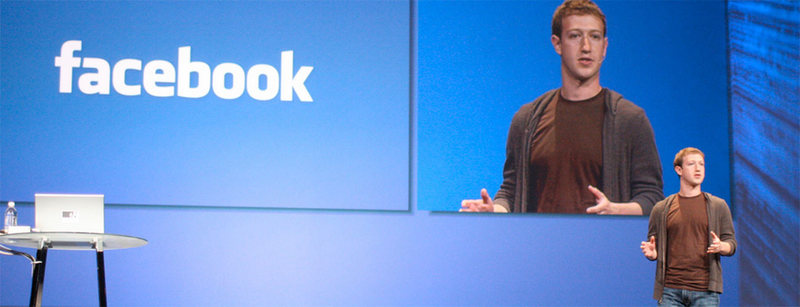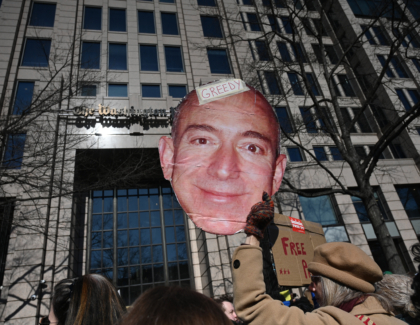Sign up for the daily CJR newsletter.
“The people formerly known as the audience,” as Jay Rosen famously put it, have been busy the past few years. They’ve recorded the police killings of Eric Garner in New York, Walter Scott in North Charleston, and Alton Sterling in Baton Rouge—raising serious questions about the role of race in the use of force, and fueling a national protest movement. Those videos were released after the fact, and now, of course, there’s heart-rending precedent for doing it in real time: Diamond Reynolds’s Facebook Live video of the moments after her boyfriend, Philando Castile, was shot by a Minnesota police officer. It was, as CJR’s David Uberti wrote, a remarkable act of citizen journalism.
And it was soon followed by the sniper ambush of police officers in downtown Dallas, where a bystander used his phone and Facebook Live to share what he was seeing, with cable news rebroadcasting the footage. Those real-time videos from Texas and Minnesota have each been viewed millions of times on Facebook alone, triggering a widespread sense that the use of livestreaming video on massive social platforms represents a critical moment in the way people make and share news.
Among the many questions raised by this moment: How will the rise of streaming mobile video, which won’t be restricted to cases like those above, challenge or complicate the law of privacy? How will we—lawmakers, courts, and the general public—respond? And aside from privacy, are there other potential sources of legal liability for streaming video users?
That’s the subject of a recent article in Journalism & Mass Communication Quarterly by media law scholar Chip Stewart and digital media scholar Jeremy Littau. Though the article makes only a brief reference to citizen journalism and predates the launch of Facebook Live, it offers a useful framework for understanding many of the legal questions raised by mobile streaming video technologies, not only Facebook Live but also Meerkat, Periscope, and the like.
Stewart and Littau conclude that under current law, users of these services are unlikely in most circumstances to face any civil or criminal liability. But they also argue, persuasively, that mobile streaming video could become a catalyst for changes to privacy law and policy—as drones, to an extent, already have been. It’s impossible to predict where that conversation will go, but it may be upon us sooner rather than later, as the popularity of mobile streaming technologies continues to grow.
Drones as precedent?
Stewart and Littau argue that the complications for privacy law will come at the intersection of two areas: privacy in public and the right to record. To make that case, they trace the roots of privacy as an American legal concept to a famous 1890 article in the Harvard Law Review, by Louis Brandeis and Samuel Warren, arguing that people should have a general right to privacy.
The legal principles that have developed around that right have, traditionally, distinguished information collection and dissemination. Services like Facebook Live—which collapse that distinction by allowing anyone with a smartphone to collect and disseminate concurrently, on a large scale—are arriving as courts have generally been narrowing what amounts to a violation of privacy.
Consider, for example, the claim of intrusion, which addresses information collection. It allows you to recover damages for a physical, electronic, or mechanical invasion of your seclusion that occurs without your consent and would be highly offensive to a reasonable person. But in most states, where courts wed your privacy rights to a reasonable expectation of privacy in a given situation, it’s difficult to win if you were in a public place during the alleged intrusion.
Under the First Amendment, too, state and federal courts have recognized strong protections for recording in public places, especially in cases involving police conduct. The protections are subject to time, place, and manner restrictions, meaning the right to record isn’t absolute, but clearly videos like the ones mentioned above—of Garner, Scott, Sterling, and Castile, as well as the Dallas shootout—are protected by the First Amendment because of their public settings and high levels of newsworthiness.
Stewart and Littau also note in the intrusion context that courts tend to look closely at whether the invasion in question would be “highly offensive to a reasonable person.” And, quoting the First Amendment scholar Rodney Smolla, the authors say that successful claims typically involve “unusually brazen insensitivity into a scene of grief, violence, or injury in which society is outraged by the distress caused to the victim or the victim’s family.”
You can imagine a livestream video that meets that threshold. But Stewart and Littau predict it will be increasingly difficult to establish offensiveness in an era of expanded surveillance and seemingly ubiquitous digital-information collection.
They make a similar point regarding the claim of public disclosure of private facts, which is just what it sounds like: a legal theory that allows you to recover damages if someone discloses information about you that lacks news value and whose disclosure would be offensive to a reasonable person. What kind of disclosures are truly offensive in a world of social sharing?
That’s the reason for thinking most livestream users face little risk from current privacy law. But, Stewart and Littau suggest, the very difficulty of winning an intrusion or private-facts claim arising from mobile streaming video may also prompt courts and legislators to rethink the law as the services come into wider use. They point to drones as an example.
As they became more affordable, drones drove privacy-law changes as states passed measures regarding unwanted aerial surveillance by unmanned aircraft. Mobile streaming video technologies have the potential to follow a similar path because, as Stewart and Littau say, they “break down the … lag between information collection and …distribution, making potential privacy violations instantaneous and unavoidable.” (Alternatively, they suggest, tech companies and users could address privacy concerns in extra-legal ways, e.g., through a service’s terms of use.)
Wiretap law and other issues
Of course, privacy is not the only area of law that may apply to mobile streaming video technologies. Stewart and Littau nod to some of the others, and I’ll do the same: You can’t trespass to capture a newsworthy event for Facebook Live, you can’t violate copyright law to stream Game of Thrones on Periscope, and you can’t jump the White House fence to make a point on Meerkat. Laws of general applicability do apply to livestreaming.
Moreover, wiretap law is a notable potential source of liability for mobile streaming video, if the place of streaming is not public. For example, it’s unlawful to intercept and/or record in-person communications that enjoy a reasonable expectation of privacy (e.g., a man is receiving medical treatment in an ambulance with the doors closed, and you’re using a sound-amplifier to pick up his conversation with the EMT and stream it). The liability here would arise from the recording rather than the streaming, though the streaming could create private-facts liability.
But the main point here is that mobile streaming video technologies, although governed by the same laws as much of the rest of our media, have the potential “to be privacy law and policy catalysts,” as Stewart and Littau conclude. It won’t be long before legislators, judges, technologists, and the rest of us must confront more directly the legal and social implications of livestreaming—and the corresponding balance of the right to livestream and the right to be let alone.
Has America ever needed a media defender more than now? Help us by joining CJR today.







